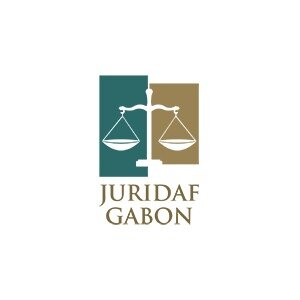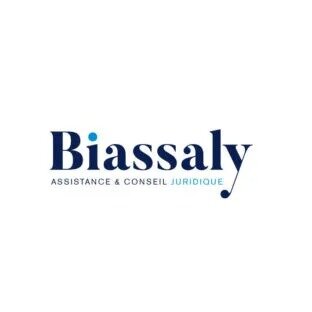Best Renewable & Alternative Energy Lawyers in Libreville
Share your needs with us, get contacted by law firms.
Free. Takes 2 min.
List of the best lawyers in Libreville, Gabon
About Renewable & Alternative Energy Law in Libreville, Gabon
Libreville, the capital city of Gabon, is witnessing increasing interest in renewable and alternative energy solutions. This growth is driven by the need for sustainable development, diversification of the energy sector, and commitments to environmental protection. Renewable and alternative energy law in Libreville encompasses the legal frameworks that govern the generation, distribution, and use of energy from sources like solar, wind, biomass, and hydropower. The government seeks to promote investment while ensuring compliance with regulatory, environmental, and land use standards, aiming to expand access to clean energy for both urban and rural populations.
Why You May Need a Lawyer
Engaging with renewable and alternative energy projects can present legal challenges for individuals, businesses, investors, and communities. Common situations where legal assistance is beneficial include:
- Negotiating contracts for solar, biomass, or wind energy installations
- Interpreting energy policies, regulatory requirements, and licensing procedures
- Ensuring environmental compliance and navigating permits for projects
- Dealing with land acquisition, land rights, and local community agreements
- Resolving disputes with contractors, suppliers, or government agencies
- Protecting intellectual property rights related to innovative energy solutions
- Advising on foreign investment, tax incentives, and government support programs
A qualified lawyer with expertise in renewable energy law can help you understand your rights and obligations, reduce risks, and ensure the success and legality of your project.
Local Laws Overview
Gabon has put in place legal frameworks to support the development of renewable and alternative energy, particularly as part of its efforts to diversify from oil dependency and promote sustainability. Some key aspects of local law include:
- The Gabonese Investment Charter offers incentives for renewable energy projects, including potential tax and customs benefits.
- Licensing and permitting are required for the generation and distribution of electricity, with specific criteria for renewable energy producers.
- The Agency for the Regulation of the Electricity Sector of Gabon (ARSEL) is responsible for supervising the electricity sector and ensuring compliance with regulations.
- Environmental impact assessments are mandatory for most large-scale energy projects, under national environmental laws.
- Foreign direct investment in the renewable energy sector is permitted but may be subject to additional requirements or approvals.
- There is an emphasis on involving local communities and respecting customary land rights when securing sites for renewable energy installations.
Staying informed about these regulations and any recent updates is crucial for successful project development and operation in Libreville and across Gabon.
Frequently Asked Questions
What types of renewable energy are commonly used in Libreville, Gabon?
Solar energy is the most accessible and commonly adopted. Hydropower and biomass are also being developed, with growing interest in wind energy for certain areas.
Is it legal for a private individual to install solar panels on their property?
Yes, individuals can install solar panels for personal or commercial use, but installation may require compliance with building codes and possible notification or approval from local authorities.
What permits are required to start a renewable energy business in Libreville?
Generally, a business license, energy sector permit from ARSEL, and compliance with environmental assessment requirements are necessary.
Are there government incentives for investing in renewable energy?
Yes, Gabon’s Investment Charter offers tax exemptions and other incentives to encourage investment in renewable and alternative energy projects.
Who regulates renewable energy projects in Libreville?
ARSEL oversees regulation and licensing in the electricity sector, including renewable energy, with the Ministry of Water and Energy providing policy direction.
How are environmental impacts assessed for renewable energy projects?
Environmental impact assessments must be conducted in line with national environmental laws, and projects may require consultation with affected communities.
Can foreign companies invest in renewable energy projects in Gabon?
Yes, foreign investment is allowed, though it may require official approvals and adherence to local partnership or employment policies.
Are power purchase agreements (PPAs) enforceable in Gabon?
Yes, PPAs are recognized in Gabon, but they must meet local legal standards and often involve state utility providers as counterparties.
What happens if I have a dispute with a contractor over a renewable energy project?
Disputes can be resolved through negotiation, mediation, or litigation depending on the contract terms and local laws. Legal representation is highly recommended.
How do land rights affect renewable energy development?
Land acquisition for projects must respect both formal land titles and customary rights, often requiring negotiation and agreements with local communities.
Additional Resources
The following organizations and bodies can provide further information or assistance related to renewable and alternative energy in Libreville:
- Ministry of Water and Energy (Ministère de l’Eau et de l’Energie)
- Agency for the Regulation of the Electricity Sector of Gabon (ARSEL)
- Gabonese National Environmental Agency (Agence Nationale de la Protection de la Nature)
- Gabonese Investment Promotion Agency (Agence Nationale de Promotion des Investissements)
- Local legal aid offices and Bar Association of Gabon
- Renewable energy industry associations and non-governmental organizations
Next Steps
If you are considering a renewable or alternative energy project in Libreville, Gabon, or are facing legal questions, here is how to proceed:
- Gather all relevant documents and information about your project or issue, including land deeds, business plans, contracts, and correspondence.
- Contact a qualified lawyer or legal advisor with experience in Gabonese energy and environmental law.
- Consult with relevant government agencies to clarify regulatory requirements and incentives.
- Engage with local communities and stakeholders as required by law, especially for land acquisition or environmental concerns.
- Stay informed about updates in energy policy and regulatory changes that may affect your project or rights.
Legal guidance can help you navigate complex regulations, avoid costly mistakes, and ensure your renewable energy initiatives are successful and compliant with Gabonese law.
Lawzana helps you find the best lawyers and law firms in Libreville through a curated and pre-screened list of qualified legal professionals. Our platform offers rankings and detailed profiles of attorneys and law firms, allowing you to compare based on practice areas, including Renewable & Alternative Energy, experience, and client feedback.
Each profile includes a description of the firm's areas of practice, client reviews, team members and partners, year of establishment, spoken languages, office locations, contact information, social media presence, and any published articles or resources. Most firms on our platform speak English and are experienced in both local and international legal matters.
Get a quote from top-rated law firms in Libreville, Gabon — quickly, securely, and without unnecessary hassle.
Disclaimer:
The information provided on this page is for general informational purposes only and does not constitute legal advice. While we strive to ensure the accuracy and relevance of the content, legal information may change over time, and interpretations of the law can vary. You should always consult with a qualified legal professional for advice specific to your situation.
We disclaim all liability for actions taken or not taken based on the content of this page. If you believe any information is incorrect or outdated, please contact us, and we will review and update it where appropriate.










